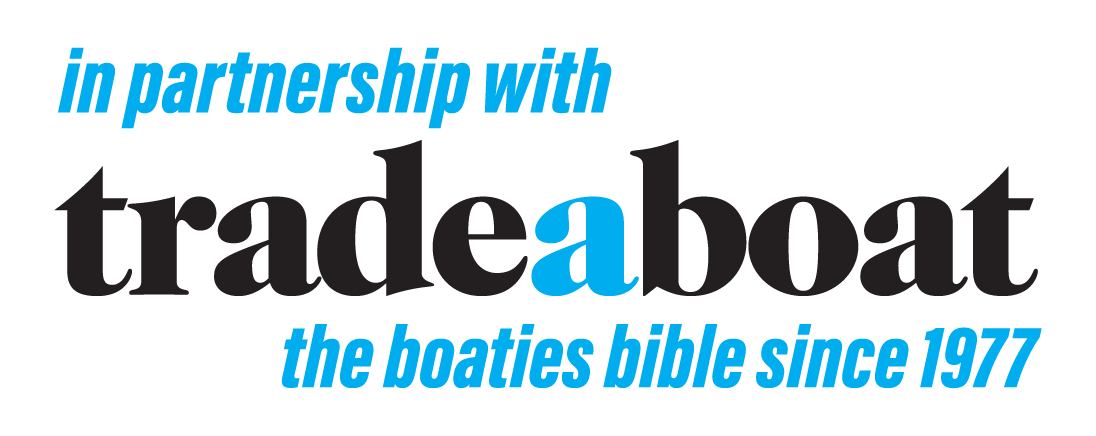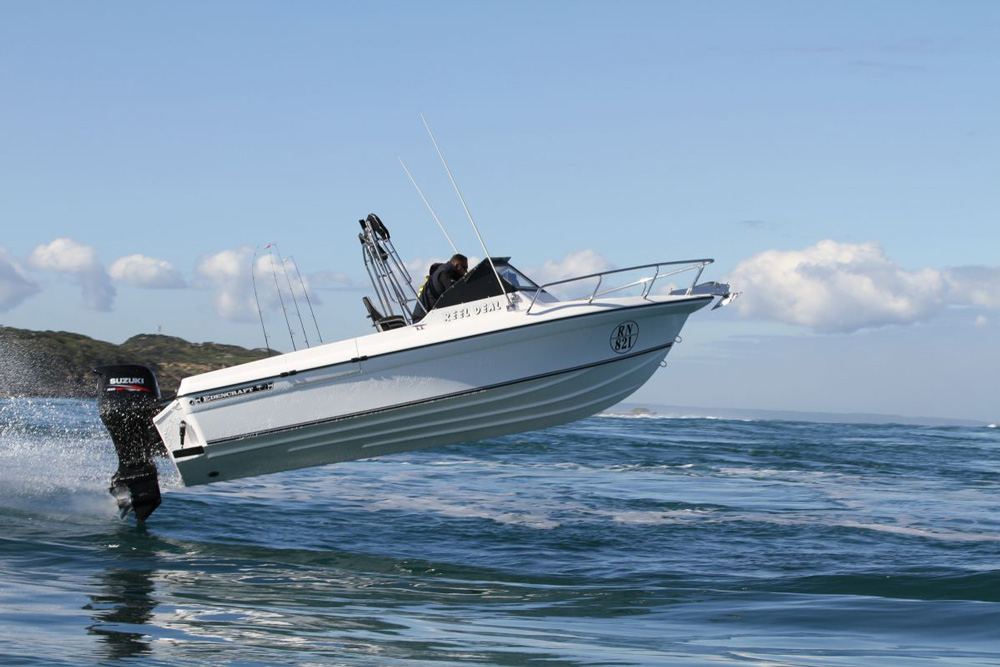
Boating Safety: Proper Preparation Prevents Poor Performance
What better way to escape the mundane than a day on the water, no matter the craft? It may be solo, with a mate, relatives or perhaps a larger party, and there’s nothing quite like doing it for yourself in your own private craft. Yet many people turn a treat into a trauma!
Owning your own boat exponentially increases your responsibilities. They start with the suitability of the craft for the expected load, weather, and tide conditions and expand into experience, ability and communication. When it comes to boating safety, the five “P’s” should never be forgotten: Proper Preparation Prevents Poor Performance.
From the Ground Up
The ill-prepared trailer boat owner may not even make it to the boat ramp without paying attention to trailer condition, suitability, and maintenance. While most people are pretty good with their towing vehicles, servicing boat trailers is often the least considered item. This creates a poor and often dangerous scenario for combinations that support and transport considerable weight and are regularly dunked in saltwater hastening rust and corrosion, often from the inside out.
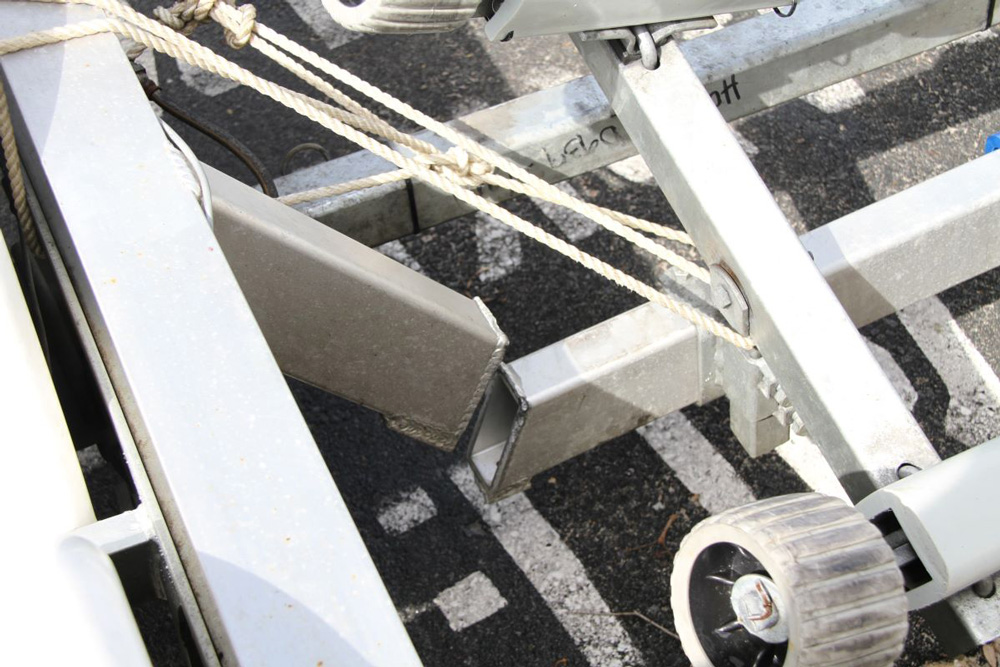
To add to the turmoil, boat trailers have many moving parts and wear points, such as brakes, springs, rollers, and their supports, and, of course, the tyres. Submersible trailer lights continue to be a source of almost constant frustration. A poorly maintained set of wheel bearings has spelled disaster for many a road trip, even if it is only to the local boat ramp. It’s also wise to be vigilant for fatigue with cracks and bending of the chassis.
Let's Go!
All of a sudden, the season has started, and the fish are on! Marine Service dealers have often been twiddling their thumbs in previous months, getting increasingly frustrated with customers who don’t think to service their boats and trailers during the off-season.
So, if you are lucky enough to make it safely to the boat ramp, the fun can finally really begin. Divorce attorneys must love boat ramps – I know they generate lots of work! All of a sudden the ramp is crowded and you’ve forgotten, or maybe haven’t ever practiced your launching sequence or reversing. Let me tell you, a busy ramp is not the time to learn.
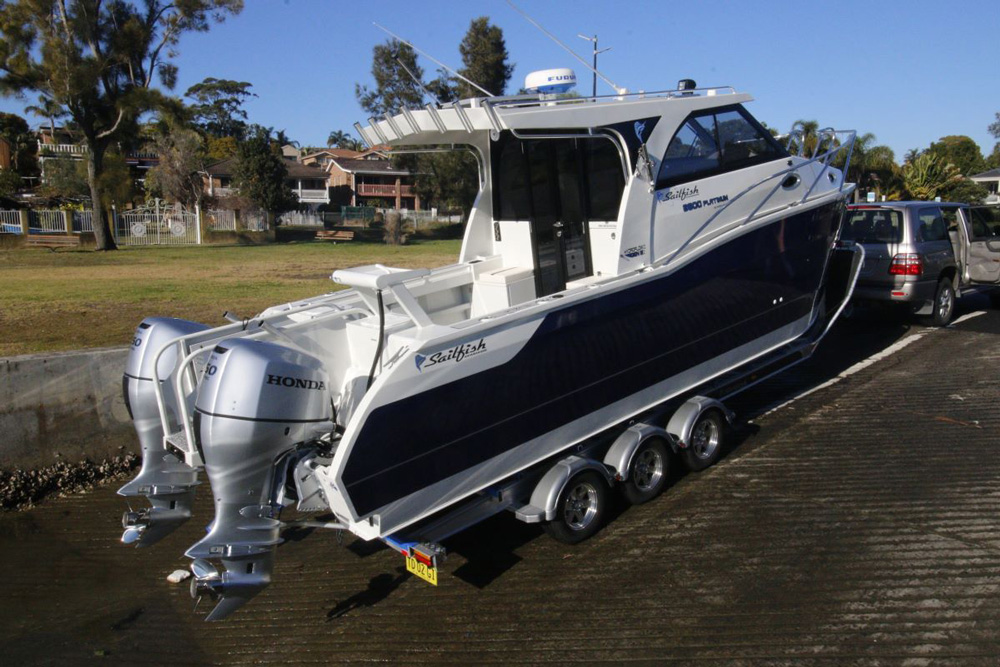
I challenge you all to a little competition. I want you all to send me a message when you forget your bungs because I guarantee that if you haven’t already done so, you will one day! The same is true for forgetting to undo your tie-down straps (that are, of course, rated for the boat weight) or failing to ensure the D-shackle on the safety chain isn’t seized. Then comes the inevitable – battery failure! Yes, batteries can die unexpectedly, but probably 99% of on-water failures can be avoided with the 5 “P’s”.
Float My Boat
Congratulations you have finally made it to the water and it’s time to launch. I am constantly amazed that so many people haven’t changed to or know how to use drive-on/off trailers. Many boaties just don’t have the confidence or skills to use them, but should you learn the routine properly, they will make your boating much simpler, safer, and more pleasurable for you – and everyone around you. It just takes a little time to practice, but do it on a quiet boat ramp. To make the job even easier, there are many boat catch-type devices on the market and plenty of “how-to” videos on the internet.
Safety is the primary consideration. Your minimum boating safety requirements are just that – a minimum. When it comes to safety gear, it is truly worth considering upgrading many items. Standard boat anchor kits are mostly too small for many vessels, especially in adverse conditions. The legal minimums often don’t allow enough chain or rope capacity. Life jackets can be poorly fitting or maintained, and a life jacket is useless if tucked up in the container under the V-berth or similar in some out-of-reach storage position. And don't forget to grab a safety lanyard to secure your mobile phone. Remember, you must stay calm and react quickly in an emergency and often don’t have the time to look for your life-saving equipment.
Boating Safety Equipment Requirements
When it comes to safety equipment, there are some baseline products and tools to be mindful of. If you have an EPIRB, make it easily accessible. The same applies to your torch, flares, and fire extinguisher. Do you really know how to use all this equipment and feel comfortable reacting accordingly in a critical situation?
Nowadays, our electronic information stream is a Godsend for boating. Learn to read weather maps and predictions and confirm current forecasting services. Sonar, GPS, chart plotters, and even radar can all add to your boating success and safety, but there’s no better resource than experience and common sense.
Communication is part of the key to safe boating, and it starts before you leave home by telling someone your intended destination, route, and estimated time of return. If you are late home because the fish are biting then ring your contact point to update. That is called respect for others. Those travelling offshore should always endeavour to log in with local services – but remember to log out again to ensure people aren’t risking their lives for you while you are safely home in bed! Oh, and by the way, yes, you should do a radio operator course and have a license if operating VHF.
Risky Business?
Boating provides endless fun and excitement, but it’s worth remembering that it also creates a scenario of “heightened risk.” It’s not only about your boat and the conditions; it may well be yours or the lives of one of your passengers that you put at risk.
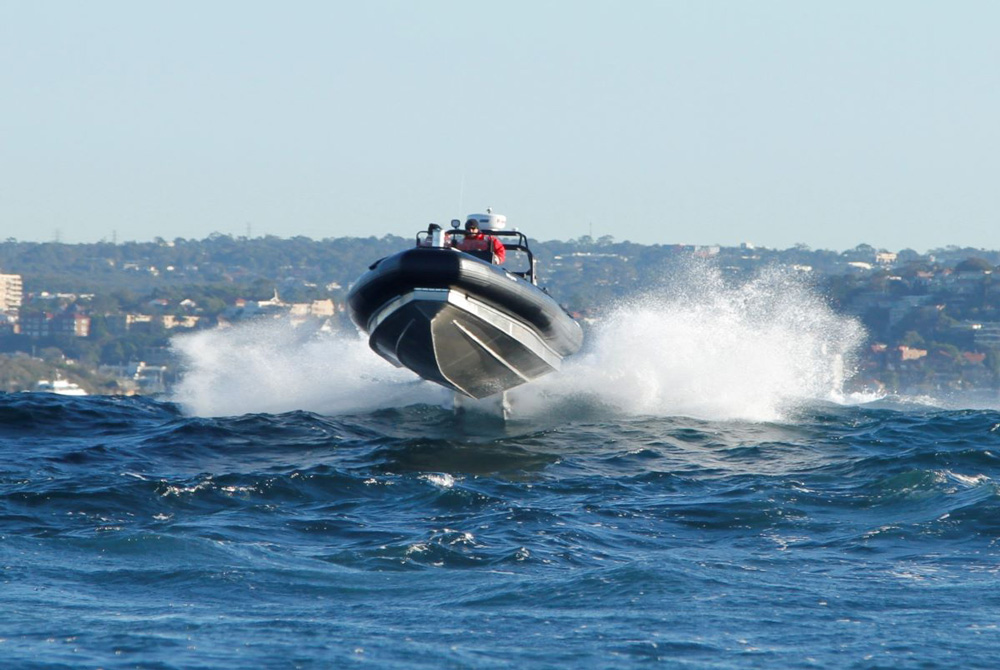
Do you have a properly equipped First Aid Kit and know how to use it? I strongly suggest you do so, not only in boating but first aid knowledge can be important in all aspects of your life. However, the life at stake may well be your own. It’s always worth a little briefing to other responsible crew members on the procedure should something happen to the skipper. That includes positioning identification, and use of radio, EPIRB and essential communications, and when and how to use them. You can’t always rely on mobile service when out boating, and you certainly won’t be very popular should you enact a Mayday or EPIRB for a non-life-threatening situation. In fact, you may find yourself open to litigation, costs, or fines.
Even experienced boaties can get into trouble through unexpected breakdowns but rest assured that our modern marine engines are generally very reliable. Fuel contamination is still a very real occurrence especially in small holiday destinations with little volume turnover. However, a good water-separating fuel filter should minimize any effects, and yet again, that all comes down to the “5-P’s.”
Electrical contacts are yet another source of constant failures. Keep all of those terminals clean, tight, and corrosion-free. Nowadays, we all run lots of electronic accessories, including electric outboards, anchor winches, pot haulers and the good old pie oven, where professional wiring standards should be employed. But first of all, you need to be sure that your engine supplies a suitable rate of charge and that there’s adequate battery availability.
Expect the Unexpected
Yet the unexpected can occur even to the best-prepared and maintained vessels. Mechanical failures and unexpected impacts with floating obstacles can occur, and introducing sharp objects for fishing and diving opens up new possibilities. A cool head, preparedness, and communication can be your salvation in these environments.
We once hit a just-submerged sunfish at high speed, travelling way over the Continental Shelf, busting all three blades off the propeller. We had a spare prop and the tools to fix it on board, but let me tell you, it’s not a nice feeling going overboard in 2000 meters of water to do the changeover, knowing there’s a bleeding sunfish in the vicinity.
Only recently I was alerted to a small boat fishing off Narooma that had been crushed by a breaching whale. It was a very rare occurrence, but it just goes to prove that you may be confronted with the unexpected while having that glorious day on the water.
A friend recently had an incident whilst fishing in one of the most treacherous stretches of water in the world, Port Phillip Heads. Although well serviced and maintained, his engine seized, and he was caught up in the whirlpools, swell and currents threatening to suck his boat under. The Coast Guard finally arrived to save the stricken craft and crew, but the limited access to the bow of the boat from the wavebreaker design made it nearly impossible to attach a tow rope. Thankfully, in this case, they finally succeeded with some very hazardous manoeuvring, but yet again, you need to think about such scenarios and prepare.
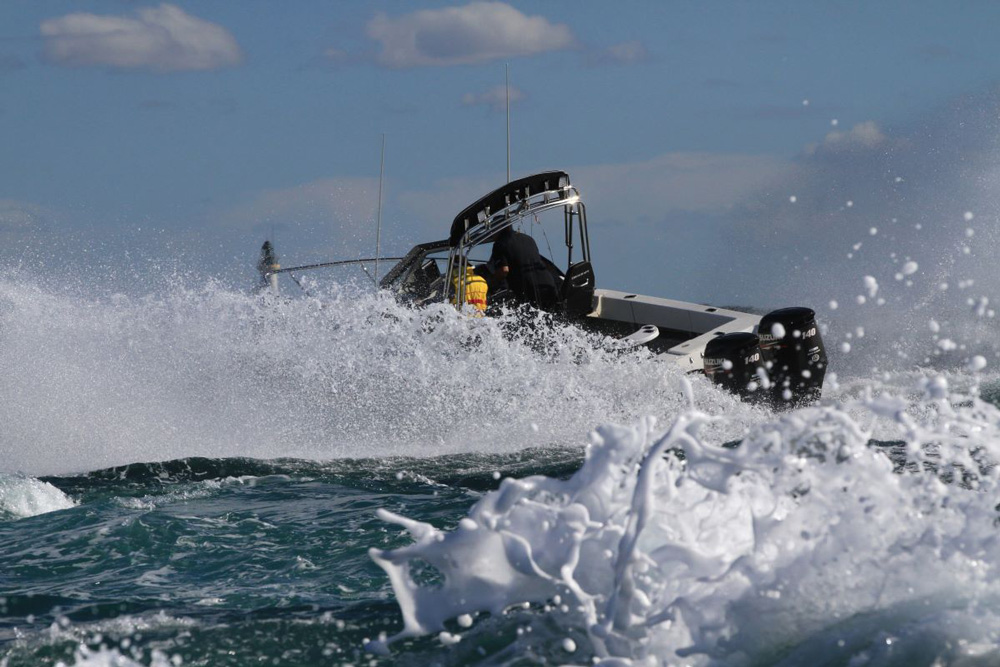
Marine disaster is most often a combination of events, but it can be triggered by the smallest item. A leaky bung, unidentified water ingress, faulty bilge pump, engine failure, flat battery, fuel contamination or similar may be relatively manageable issues if you aren’t in a situation of heightened risk with poor communications. Yet we often see inexperienced skippers heading well outside their comfort zones or experience levels with little or no regard for the dangers that may unfold, especially during bar crossings. The simple answer is to get qualified advice and ensure your boat is equipped for the challenge.
Pre-purchase checks and regular inspections from qualified marine experts are an excellent way to ensure you have taken practical advice from experienced seafarers. Do you, or your family and friends deserve anything less?
Laws legislate for tangibles; the rest is up to you!
Begin Your Boating Adventure with Only Boats
If you're looking to purchase a boat then look no further than Only Boats! We offer a massive variety of both new and used boats for sale in almost every category, from yachts to cheap boats for sale. We also have jet skis for sale, if that's a little more your speed. Only Boats is also an easy way to sell your boat online, so if it's time for an upgrade (or if you're a boat dealer), we've got you covered!
For a great deal on financing your new purchase, contact Australia's best reviewed finance broker on 1300 Credit (1300 273 348) today or visit CreditOne.com.au
